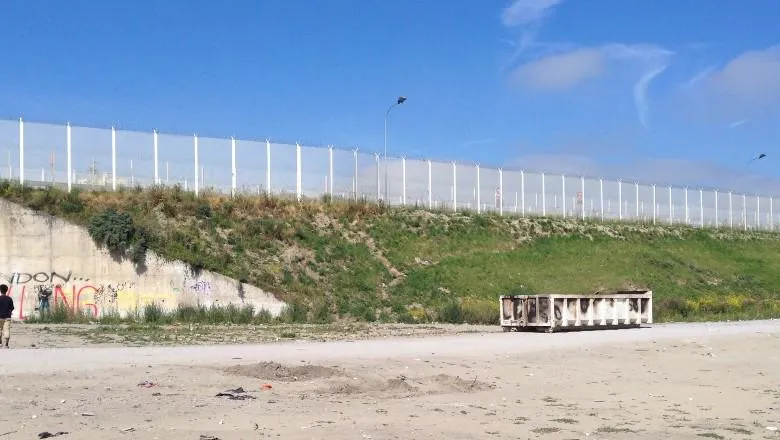It’s also a moment to really think about the relationships between violence and race…we cannot understand our European history, our systems of thought, as well as our practices without thinking about the forced migration of slavery and colonialism more generally.
Dr Leonie Ansems de Vries, Senior Lecturer in International Relations in the Department of War Studies
16 June 2020
COVID-19 and its impact on refugee populations
An interview with Dr Leonie Ansems de Vries on how COVID-19 is impacting vulnerable refugee populations.

Dr Leonie Ansems de Vries, Senior Lecturer in International Relations in the Department of War Studies and Chair of the Migration Research Group, discusses how COVID-19 is impacting vulnerable refugee populations in an interview for Refugee Week 2020. She also argues that the Black Lives Matter movement offers a chance to examine the link between our colonial past and the migration of refugees today.
The above video interview is a longer length version of Spotlight on COVID: How the pandemic is affecting refugees.
Leonie’s research focuses on migration management and how this can be directly and indirectly violent on people through the use of visa restrictions, borders, technological systems. She also studies how all of this affects people’s experience of being on the move. Leonie believes that the refugee crisis has been misnamed, stating ‘it’s not just European and I don’t think we should see migration as a crisis.’
During the global COVID-19 pandemic, focus has turned away from refugees, especially those who are not so visible because they are in migration detention centres or in informal settlements. As COVID-19 can spread quite easily in both scenarios, vulnerable refugee populations are at great risk from the virus.
In terms of how this is being managed, Leonie is concerned because we do not have a clear insight of what is happening or how the pandemic is affecting refugees and migrants. Especially because, as she explains, ‘the conditions were already appalling…the policies around migration are designed to make life as difficult as possible for people who are there irregularly.’
During the lockdown in France, some accommodation and food has been provided but Leonie explains that this has been largely inadequate, with people fighting to get basic necessities such as water, food and sanitation, with some people not having access to clean drinking water.
One of the biggest problems, in Leonie’s view, is that because there is so much violence in the area on behalf of the authorities, people are afraid to trust them. What makes matters worse is that raids have continued on refugee camps.
In Europe, we have seen unprecedented steps taken to contain the virus, including the mass scale closing of borders across the EU and Schengen. It has been reported that asylum applications in Europe have fallen to the lowest levels in a decade. Some world leaders have even tried to scapegoat refugees for causing the spread of the virus. Dr Ansems de Vries comments on the impact of this:
‘There’s a much longer history of this identification of migrants and refugees with disease and uncleanliness and danger…Thinking about broader migration management systems and policies…free movement [in Europe]…goes hand in hand with the idea that then we need to create an external border and that we need to fortify that border to make sure that nobody else comes in.’
The theme for this year’s Refugee Week (15-21 June) is “Imagine”, and we have seen people protesting around the world following the murder of George Floyd, calling for a better future, free from structural racism. Leonie suggests this movement for change is also an opportunity to examine the link between our colonial past and the migration of refugees today.
Leonie discusses what this means for us now and how we can reflect on issues such as the “hostile environment” in the UK context, ‘not as something the government does out there and that’s problematic, but as something that’s suffused throughout society and affects refugees and also others, and really think about our own communities, our own institutions, our own organisations and how does it play out there…and what can we do about it.’
Find out more about how King’s is contributing to understanding and responding to the global issue of forced displacement and helping to realise the educational potential of refugees on the King’s Sanctuary Programme webpage.

